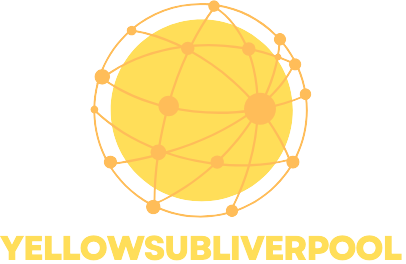Table of Contents
ToggleIn a world that glorifies hustle and relentless ambition, grind culture has become the badge of honor for the modern worker. It’s that relentless push to work harder, achieve more, and sleep less, all while sipping overpriced coffee and scrolling through motivational quotes. But what does it really mean to be part of this grind?
As individuals chase the dream of success, they often find themselves caught in a whirlwind of late nights and early mornings. While some thrive in this chaotic environment, others question if the grind is worth the toll it takes on mental health and personal lives. Understanding grind culture isn’t just about deciphering its meaning; it’s about navigating the fine line between ambition and burnout. So, grab your favorite caffeinated beverage and dive into the fascinating world of grind culture—where the hustle is real, but so are the consequences.
Understanding Grind Culture
Grind culture embodies a mindset centered on persistent effort, tenacity, and an unwavering drive for achievement. This culture often glorifies long hours and relentless productivity, pushing individuals to prioritize work over personal well-being.
Definition of Grind Culture
Grind culture refers to the work ethic that praises constant exertion. It emphasizes ambition and the belief that hard work guarantees success. Many individuals accepting this ideology experience pressure to keep hustling, sometimes at the expense of health and relationships. The focus remains on achieving goals, often leading to a notion that rest equates to weakness.
Historical Context
Historically, grind culture has roots in the industrial revolution. During that era, the focus shifted toward maximizing productivity within the workforce. The hard work ethic gained traction as businesses aimed for profitability. By the late 20th century, the entrepreneurial boom intensified this culture, leading many to idolize relentless hustlers in various industries. Shifted societal values towards self-made success stories further entrenched the notion of continuous labor as a badge of honor.
Characteristics of Grind Culture

Grind culture embodies a relentless pursuit of success, marked by distinct characteristics that define its essence.
Work Ethic and Expectations
A strong work ethic defines grind culture, pushing individuals to achieve ever-higher standards. Individuals often face the expectation to work long hours, with many equating busyness with success. This culture glamorizes being constantly productive, creating pressure to always deliver results. Deadlines frequently become tight, fostering an environment where rest is seen as unnecessary. The expectation to remain accessible also contributes to this relentless pace.
Impact on Personal Life
Grind culture significantly impacts personal lives, often sacrificing well-being for ambition. Relationships can suffer due to long hours and constant availability; friends and family might feel neglected. Mental health issues, such as anxiety and burnout, frequently arise from this lifestyle, resulting in decreased overall satisfaction. Individuals may find it challenging to enjoy leisure activities, with personal time often devoted to work-related tasks. Balance becomes elusive, as the drive for success overshadows essential personal connections.
The Pros and Cons of Grind Culture
Grind culture presents both advantages and drawbacks that impact individuals in various ways.
Benefits of Embracing the Grind
Achieving professional success often connects to the dedicated work ethic inherent in grind culture. Many individuals find that hard work and relentless ambition lead to significant accomplishments, such as promotions and entrepreneurial success. Personal growth also occurs as individuals develop discipline and resilience through consistent effort. Networking opportunities arise during long hours, allowing people to build relationships that may open doors. Moreover, the drive for productivity fosters mastery in skills, enhancing overall career satisfaction. Ultimately, the culture of grinding cultivates an environment that celebrates those who remain laser-focused on their goals.
Negative Effects on Mental Health
Striking a balance becomes challenging amid the pressures of grind culture. Stress and anxiety often escalate as individuals prioritize work over well-being. Exhaustion takes a toll, leading to burnout, which negatively affects productivity and mood. Relationships suffer when constant work prevents individuals from connecting with friends and family. Mental health issues become prevalent due to the inability to disconnect from the demands of work. This culture encourages individuals to neglect self-care, which can create a vicious cycle of stress and reduced performance. Recognizing these negative effects is crucial for maintaining mental wellness in a high-achieving environment.
Shift Away from Grind Culture
Shifts in attitudes toward work have become increasingly prominent. Current discussions emphasize emerging trends that challenge traditional grind culture.
Emerging Trends and Alternatives
Flexible work arrangements gain popularity among individuals seeking balance. Remote work options allow employees to create personalized environments that enhance productivity. Additionally, companies increasingly adopt results-oriented work environments. These shifts encourage employees to focus on output rather than hours spent on tasks. Mindfulness practices also surface as effective alternatives for managing stress. Individuals who incorporate wellness activities into their routines report improved mental health. New initiatives focusing on employee well-being foster positive organizational cultures. Consequently, these changes pave the way for healthier work-life integration.
Balancing Work and Life
Achieving a satisfactory work-life balance requires intentional effort. Prioritizing personal time leads to enhanced focus during work hours. Many professionals embrace time management techniques to allocate hours effectively. Setting boundaries around availability helps mitigate the expectations of constant engagement. Individuals who dedicate time to hobbies and relationships experience greater fulfillment. Encouraging regular breaks during work hours also proves beneficial for mental clarity. Supportive workplace environments facilitate discussions around boundaries and personal needs. As a result, maintaining a balance between professional responsibilities and personal well-being becomes more achievable.
Grind culture presents a complex landscape where ambition and productivity often overshadow personal well-being. While it can drive professional success and foster growth, the risks associated with relentless work are significant. Individuals must navigate the fine line between striving for excellence and preserving their mental health.
As society shifts towards more balanced work environments, embracing flexibility and self-care becomes essential. Recognizing the importance of rest and personal time is crucial for sustainable success. By prioritizing well-being alongside ambition, individuals can cultivate a more fulfilling and healthier approach to their professional lives.







